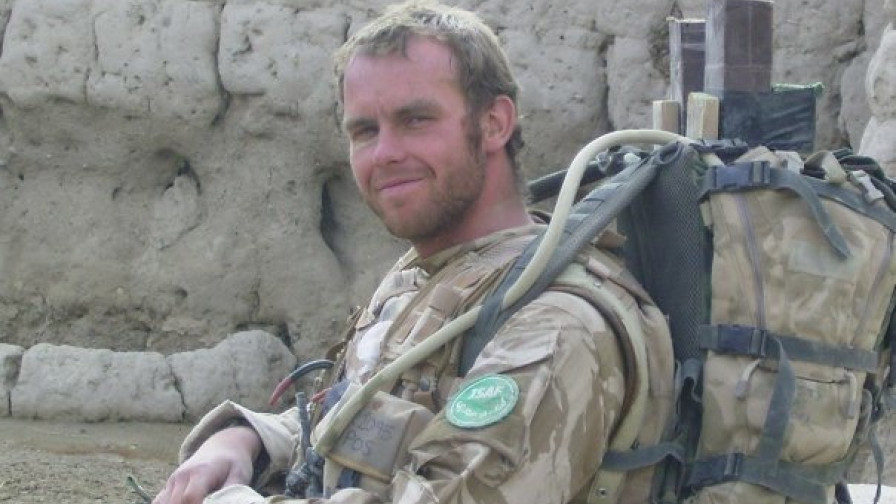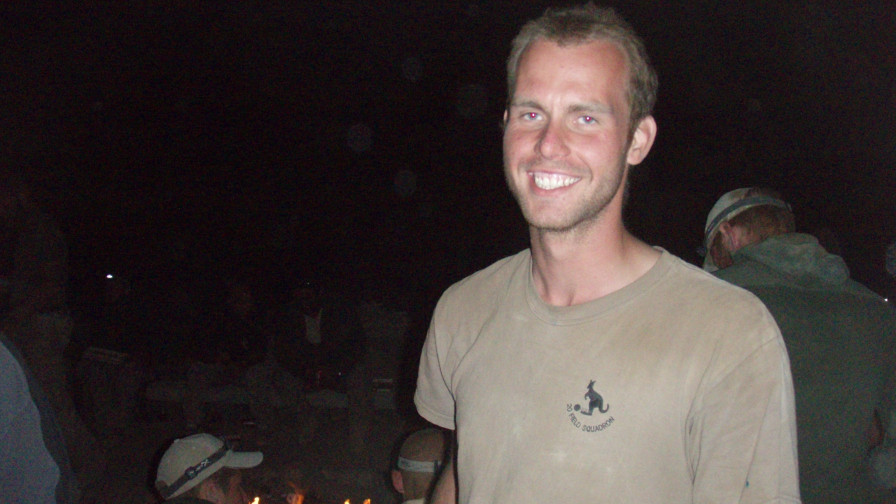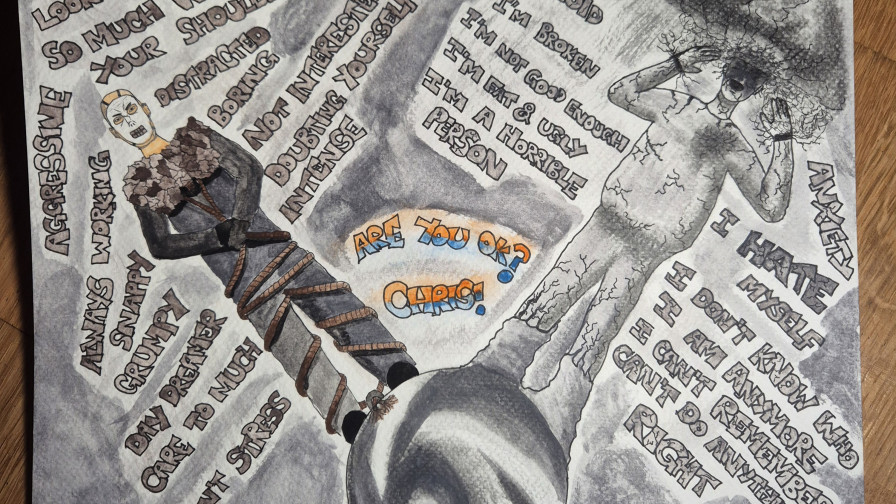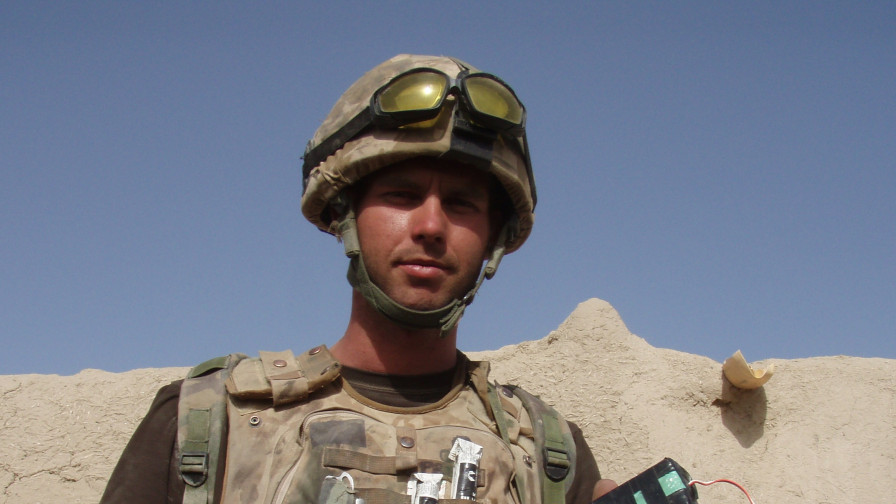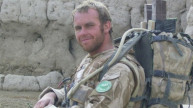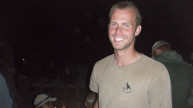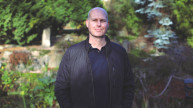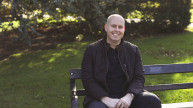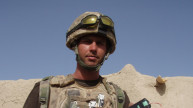Chris' Story
“Treatment helped me repair bridges I thought I'd blown up - I don't know how to say thank you.”
Army veteran Chris’ time in Iraq and Afghanistan left him with PTSD but now he’s living his life again thanks to our specialist mental health treatment.
After being raised in a military family, Chris joined the Army at 16 and served with the Royal Engineers for the entirety of his nine years’ service. He thrived during his time in the military, serving in Iraq twice as part of Op Telic then was deployed to Afghanistan in 2007. “I was in absolute squaddie Heaven,” he says. “I was doing everything I’d trained for as a soldier in combat situations and gathering intelligence. I remembered when we complained in training because you’d be sneaking around bushes on a close target reconnaissance in the rain in Wales thinking ‘why are we doing this?’ But to do it for real and look over and see the Taliban was mind blowing.”
Chris believes his PTSD stems from seeing a young Afghan girl being injured by picking up some British ammunition. “A lot happened in Afghanistan but the incident that really stuck with me was when a little girl was injured,” he says. “We’d had close calls in combat situations, but it was my first civilian casualty that hit me. To see a child injured after picking up some ammunition of ours was heartbreaking.
"At the time it was just ‘deal with what’s in front of you and move onto the next thing’ but I know now that I beat myself up for a long time about it and really struggled with it. I was always questioning whether we could have done anything different or better.”
Coupled with this, Chris also sadly lost two friends in Afghanistan: “It really hit me, but we all thought ‘this is what happens in war’, so we balled it up and never dealt with any of it.”
When Chris returned from Afghanistan on R and R (rest and recuperation) he found the transition hard. “It was surreal – within 48 hours I’d gone from a warzone to sitting on a train in the UK,” he says. “I looked down and still had blood on my trousers from a casualty. In the luggage hold was my daysack, body armour and helmet. People were buying us beers and saying thank you, but I found it really hard to take.”
Chris’s wife noticed a change in him after Afghanistan, and he found himself avoiding being at home. “Looking back, the warning signs started early,” he says. “I distanced myself from my wife - she saw that I’d changed and was tiptoeing around me.”
Chris left the Army in 2009 but found working life hard on Civvy Street, as “I didn’t understand why my colleagues just stopped when there was still work to do”. As time went on his marriage broke down but he started to realise something was wrong after he remarried.
“My mood would go up and down,” he says. “I was hyper-critical of myself and people were commenting on it. I was gobbing off about other people because I just didn’t care. I was having bad dreams, pushing my wife away and she was pleading with me because it was it was affecting our home life. I was always miserable and just wanted to be on my own. I didn't know what was going on, but realised something wasn’t right. I thought I was broken.”
Chris sought help through his work’s employee assistance programme, where the call handler recognised the signs of PTSD and told him to call a specialist charity. With Chris’ wife’s help he found our Helpline and called us in late 2023.
“It was brilliant - you think ‘this person actually cares’,” he says. “They're not just doing the job, they're genuine. You can feel that they want to help you - it was the first time I'd experienced that outside of the Army.”
Chris started having Cognitive Behavioural Therapy with us, before taking part in our online intensive treatment programme, VICTOR, in November 2024. “The VICTOR team were just incredible and the build up to it when they explained the programme was brilliant,” he says. “Then we were offered support for my wife. Knowing that she would be looked after was game changing for me. VICTOR was really hard. I've never been so tired - even in Afghanistan when I’d been up for 72 hours, I wasn't as mentally drained. But it was incredible.”
“Having treatment online really worked for me, as I was at home so in a safe and familiar place. We developed some initial coping strategies at the beginning, so I already knew that if it got too much, I could go outside to snap out of it. Having those private personal spaces at home made the treatment for me. If I’d have done residential treatment, I think I'd have ended up staying in my room as I just wanted to be on my own to begin with, so being online really worked for me.”
During Chris’ treatment he connected with art therapy, drawing an incredibly personal picture that summed up his feelings towards his experiences and his treatment. “We had to explain our drawings and I said stuff in that session that I never thought I'd say and that I hadn’t spoken about for over 15 years.” he says. “It really hit me, really affected me emotionally but opened some flood gates for me in treatment. It also opened up my creativity and I still do art and mindfulness photography now, even though my treatment has ended.”
Chris has now been discharged from our treatment and is looking forward to the next stage of his life. “It’s been life changing,” he says. “My wife often says it's nice to have me back, but I think the biggest part of treatment for me was learning that I'm not broken and I'm not on my own.
“It's helped me repair bridges that I thought I'd blown up. I just don't know how to say thank you.”
October 2025

